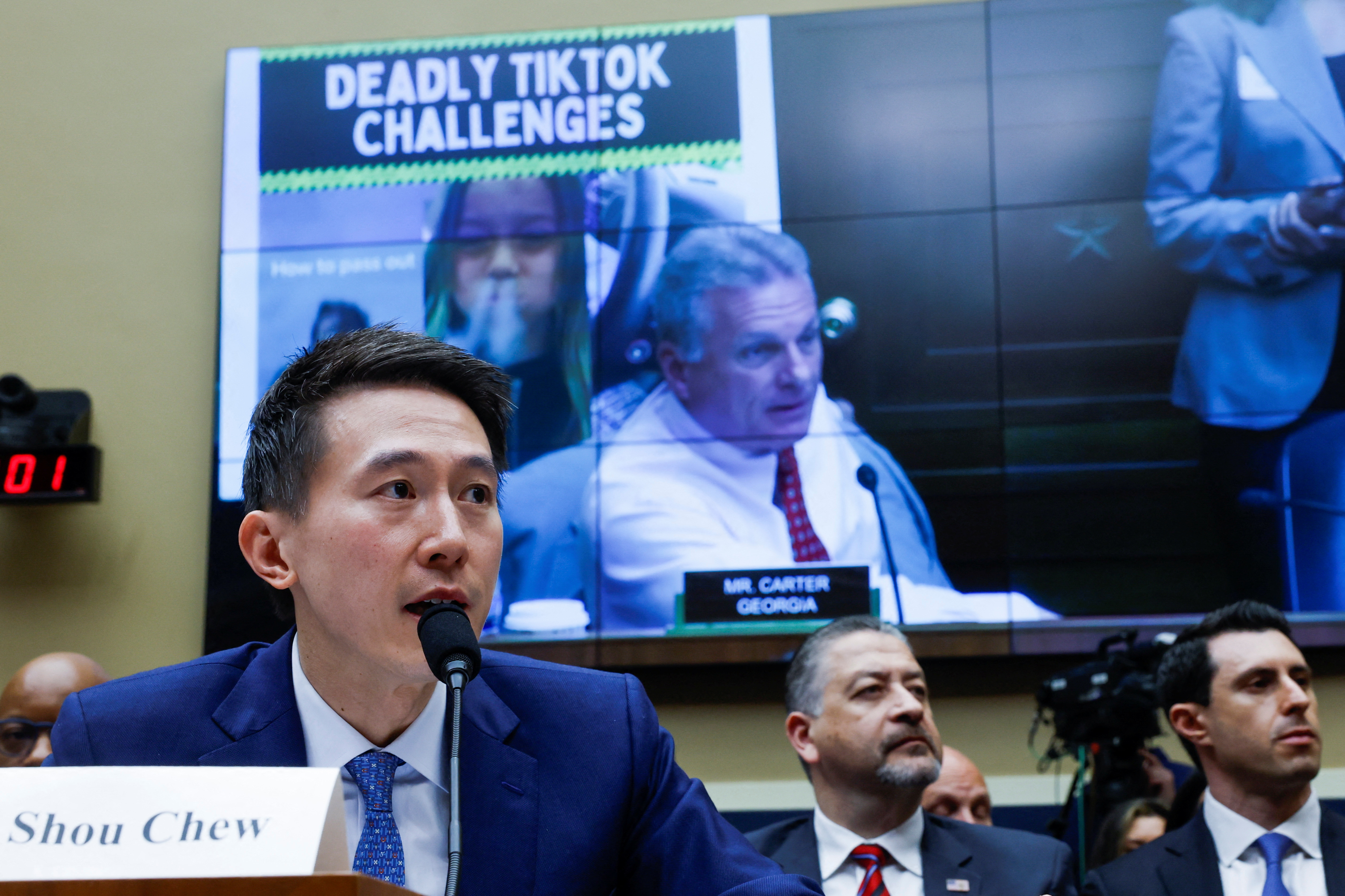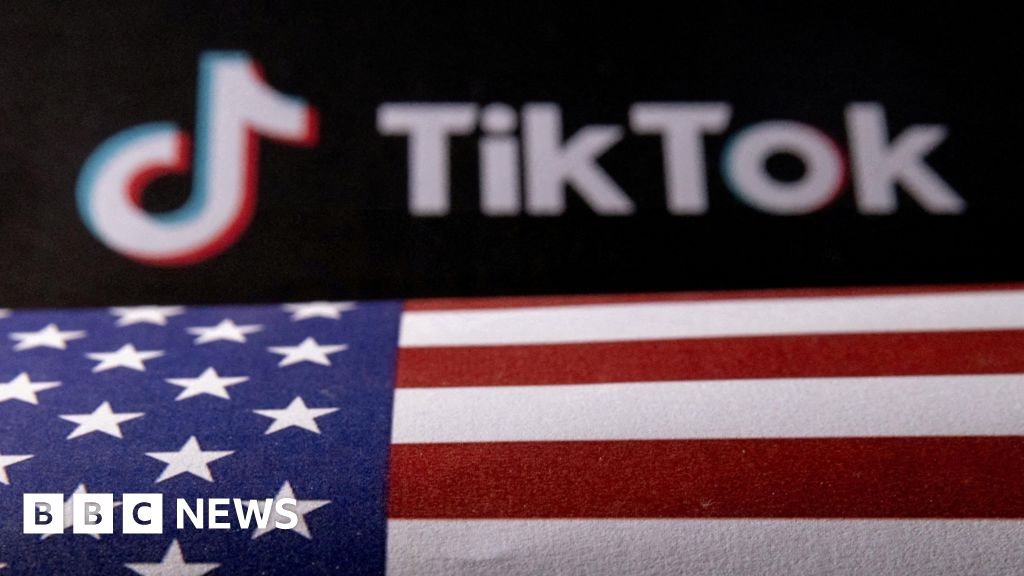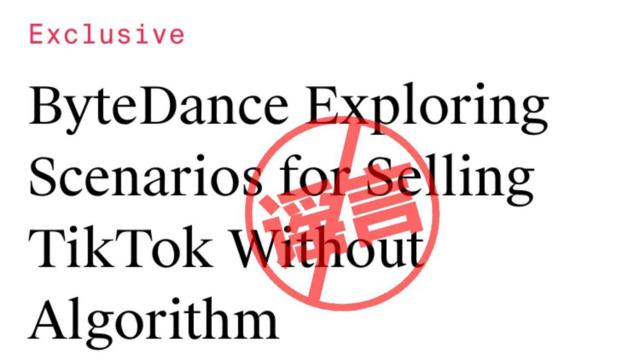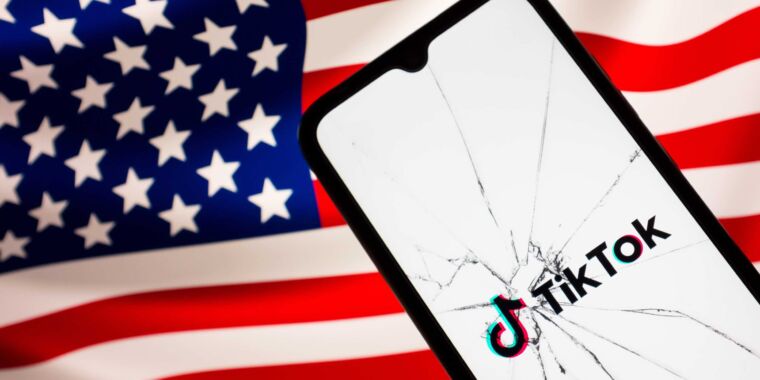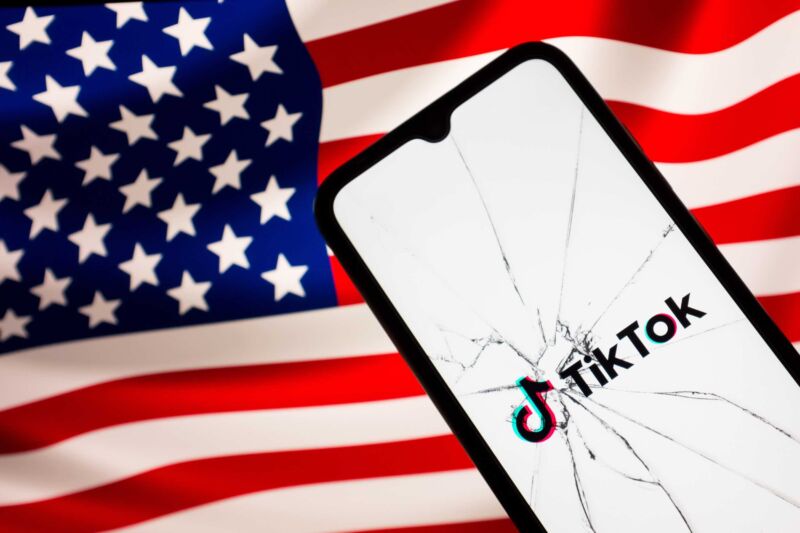Professor: US faces "uphill battle" justifying law against First Amendment suit.

arstechnica.com
TikTok owner has strong First Amendment case against US ban, professors say
Professor: US faces "uphill battle" justifying law against First Amendment suit.
JON BRODKIN - 4/26/2024, 1:49 PM
Enlarge
Getty Images | NurPhoto
257
TikTok owner ByteDance is preparing to sue the US government now that President Biden has
signed into law a bill that will ban TikTok in the US if its Chinese owner doesn't sell the company within 270 days. While it's impossible to predict the outcome with certainty, law professors speaking to Ars believe that ByteDance will have a strong First Amendment case in its lawsuit against the US.
One reason for this belief is that just a few months ago, a US District Court
judge blocked a Montana state law that attempted to ban TikTok. In October 2020, another federal judge in Pennsylvania
blocked a Trump administration order that would have banned TikTok from operating inside the US. TikTok also
won a preliminary injunction against Trump in US District Court for the District of Columbia in September 2020.
"Courts have said that a TikTok ban is a First Amendment problem," Santa Clara University law professor Eric Goldman, who
writes frequent analysis of legal cases involving technology, told Ars this week. "And Congress didn't really try to navigate away from that. They just went ahead and disregarded the court rulings to date."
The fact that previous attempts to ban TikTok have failed is "pretty good evidence that the government has an uphill battle justifying the ban," Goldman said.
TikTok users engage in protected speech
The Montana law "bans TikTok outright and, in doing so, it limits constitutionally protected First Amendment speech," US District Judge Donald Molloy
wrote in November 2023 when he granted a preliminary injunction that blocks the state law.
"The Montana court concluded that the First Amendment challenge would be likely to succeed. This will give TikTok some hope that other courts will follow suit with respect to a national order," Georgetown Law Professor
Anupam Chander told Ars.
Molloy's ruling said that without TikTok, "User Plaintiffs are deprived of communicating by their preferred means of speech, and thus First Amendment scrutiny is appropriate." TikTok's speech interests must be considered "because the application's decisions related to how it selects, curates, and arranges content are also protected by the First Amendment," the ruling said.
Banning apps that let people talk to each other "is categorically impermissible," Goldman said. While the Chinese government engaging in propaganda is a problem, "we need to address that as a government propaganda problem, and not just limited to China," he said. In Goldman's view, a broader approach should also be used to stop governments from siphoning user data.
TikTok and opponents of bans haven't won every case. A federal judge in Texas
ruled in favor of Texas Governor Greg Abbott in December 2023. But that ruling only concerned a ban on state employees using TikTok on government-issued devices rather than a law that potentially affects all users of TikTok.
Weighing national security vs. First Amendment
US lawmakers have alleged that the Chinese Communist Party can weaponize TikTok to manipulate public opinion and
access user data. But Chander was skeptical of whether the US government could convincingly justify its new law in court on national security grounds.
"Thus far, the government has refused to make public its evidence of a national security threat," he told Ars. "TikTok put in an elaborate set of controls to insulate the app from malign foreign influence, and the government hasn't shown why those controls are insufficient."
The
ruling against Trump by a federal judge in Pennsylvania noted that "the Government's own descriptions of the national security threat posed by the TikTok app are phrased in the hypothetical."
Chander stressed that the outcome of ByteDance's planned case against the US is difficult to predict, however. "I would vote against the law if I were a judge, but it's unclear how judges will weigh the alleged national security risks against the real free expression incursions," he said.
Montana case may be “bellwether”
There are at least three types of potential plaintiffs that could lodge constitutional challenges to a TikTok ban, Goldman said. There's TikTok itself, the users of TikTok who would no longer be able to post on the platform, and app stores that would be ordered not to carry the TikTok app.
Montana was sued by TikTok and users. Lead plaintiff Samantha Alario runs a local swimwear business and uses TikTok to market her products.
Montana Attorney General Austin Knudsen appealed the ruling against his state to the US Court of Appeals for the 9th Circuit. The Montana case could make it to the Supreme Court before there is any resolution on the enforceability of the US law, Goldman said.
"It's possible that the Montana ban is actually going to be the bellwether that's going to set the template for the constitutional review of the Congressional action," Goldman said.
Case goes beyond First Amendment
Court challenges may involve more than just the First Amendment. ByteDance could argue that it is being deprived of property under the takings clause, for example.
ByteDance could also argue that the law is a
bill of attainder, which is legislation that punishes a specific person or group of people without a trial. The new US law allows for other applications to be designated as being controlled by foreign adversaries, but singles out TikTok and ByteDance by name.
"The fact that TikTok is named by name in the bill is a potential problem. It looks a little bit like a bill of attainder type of problem," Goldman said.
Law’s bipartisan support makes predictions tricky
The TikTok ban-or-sale bill had support from Republicans and Democrats in Congress. The House Commerce Committee
voted 50-0 to approve it in March. The TikTok legislation was later included in a
larger appropriations bill that provides aid to Ukraine, Israel, and Taiwan. The Senate voted 79-18 in favor of the legislation package.
Opponents of the TikTok ban-or-sale bill also included both Republicans and Democrats. "This bill cuts across partisan lines, and so I don't think we can easily assume a partisan outcome from the Supreme Court," Goldman said.
"Some justices seem to be disposed against technology companies, other justices may be more willing to defer to national security claims, and most of the justices are strongly inclined to protect free expression online," Chander said. "It is hard to predict if there is a coalition of five justices for or against such a law."
When asked if any precedents might indicate whether ByteDance is likely to win or lose, Chander pointed to a
1965 ruling that invalidated a US law that imposed restrictions on mailings of "communist political propaganda." The court challenge involved mail delivery of a Chinese magazine, the Peking Review.
"In
Lamont v. PostMaster General, at the height of the Cold War, the Supreme Court sided with free speech against a law seeking to hamper the flow of Chinese propaganda into the United States," Chander said.
Actions against Huawei not quite the same
The US has previously imposed strict limits on networking and hardware products from Chinese companies such as Huawei. But Goldman and Chander say that justifying the TikTok restriction is more difficult because of the free speech implications.
"The national security interest has to be balanced against the speech interest, which isn't always at play as obviously with other types of bans of goods or services based on national security grounds. This [TikTok] is a speech product that's being targeted and it has special considerations that other types of goods and services don't have," Goldman said.
As Chander said, "Huawei couldn't claim that its First Amendment rights were at stake, or the rights of its users. A change in ownership or a ban will have dramatic effect on the speech of both TikTok and its users."
A court could block the TikTok ban-or-sale provision while upholding laws that address national security problems more broadly. The same bill that requires a sale or ban on TikTok includes another
section making it illegal for a data broker to sell or transfer sensitive data to foreign adversaries or entities controlled by foreign adversaries.
"One possibility is a court could uphold the data broker ban and strike down the outright ban of TikTok, saying there was a less restrictive alternative for you to use—and you actually literally used it," Goldman said.
That is what happened in the Montana case. Judge Molloy's ruling said "the current record leaves little doubt that Montana's legislature and Attorney General were more interested in targeting China's ostensible role in TikTok than with protecting Montana consumers. This is especially apparent in that the same legislature enacted an entirely separate law that purports to broadly protect consumers' digital data and privacy."
ByteDance reportedly prefers leaving US over selling
While TikTok's case against the US will likely take many months, Goldman said we may get a better sense of the Supreme Court's views on social media much sooner. The court in February
heard oral arguments on Florida and Texas state laws that limit how social media companies can moderate user-generated content.
"It remains unclear how vigorously the Supreme Court will protect users' First Amendment rights online, and that's the part I can't guess," Goldman said. "But we're going to get some data about that before we have any court rulings on the congressional TikTok ban."
If ByteDance loses in court, early indications suggest the company will pull TikTok out of the US instead of selling. ByteDance said this week that reports of it exploring a sale "are untrue," The Wall Street Journal
reported.
A
Reuters report says that sources indicate "TikTok owner ByteDance would prefer to shut down its loss-making app rather than sell it if the Chinese company exhausts all legal options to fight legislation to ban the platform from app stores in the US."

addons.mozilla.org

